President

Chris Green
President, PNWH2
Chris Green is the President of the Pacific Northwest Hydrogen Association, where he is responsible for executing on PNWH2’s vision to create a hydrogen ecosystem in partnership with labor, Tribal Nations, and public and private sectors in the Pacific Northwest. Chris comes from the Washington State Department of Commerce, where he served as Director for the Office of Economic Development and Competitiveness from 2015 to 2024. Before assuming the role of President, he served as PNWH2’s Board Chair from its inception in 2022 to June 2024.
Prior to that, Chris was Vice President for Business Retention and Expansion for the Economic Development Board for Tacoma-Pierce County, and Co-Chair of the Tacoma-Pierce Aerospace Partners, a group focused on growing and improving the local aerospace industry. Green previously worked in government relations and on the staff of several elected officials, including former Congressman Norm Dicks and current Congressman Derek Kilmer.
Board of Directors

Alan Krause
Board Chair, PNWH2
Alan Krause provides senior and executive guidance on renewable energy opportunities globally. He has 45 years of experience in energy and water infrastructure development, serving as Chairman, CEO and President of MWH Global and, after merging with Stantec, as Global President. During his career, Alan has focused on the natural resource and water infrastructure sector and has extensive experience with global projects involving hydropower, pumped storage, geothermal and wind generation+baseload on a global basis.
He holds an MS in Geological Engineering (Geotechnical) from the Mackay School of Mines and completed the three-year (1996-98) Owners – Presidents Program at Harvard Business School.
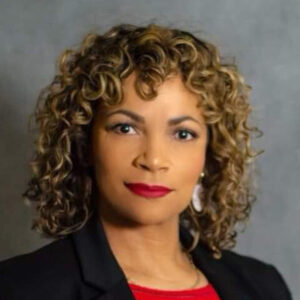
April Sims
Vice Chair, PNWH2 / Washington State Labor Council (Labor)
April Sims (she/her) was elected President of the Washington State Labor Council, AFL-CIO, in October 2022 and was sworn in to begin her four-year term in January 2023. She is the first woman to be elected WSLC president and the first Black woman elected to the presidency of an AFL-CIO state federation. As President, April is the chief executive officer of the council, supervises all of its activities and staff, and leads Washington’s largest union organization representing more than half a million union members.
In 2002, April joined the staff of her union, Washington Federation of State Employees, AFSCME Council 28 (WFSE), eventually serving as Legislative and Political Action Field Coordinator. She joined the WSLC staff in 2015 as Field Mobilization Director before becoming the WSLC’s Political and Strategic Campaign Director in 2017.
In 2018, the unions that comprise the WSLC elected April as Secretary-Treasurer of the council, the first person of color elected as a WSLC executive officer. She served in that office, as the council’s Chief Financial Officer, from 2019 to 2022.
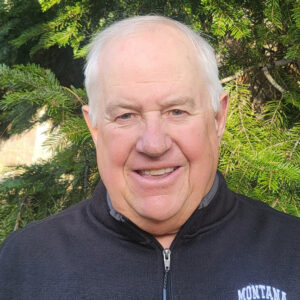
George Bailey
St. Regis Solar Hydrogen
George Bailey spent years teaching and coaching in schools in every corner of Montana. He served as a school superintendent and was chosen by his colleagues as the president of the Montana Association of School Superintendents in 1994. He was named Montana Educator of the Year by his peers in 1993.
George created St. Regis Solar Hydrogen and attracted a world class team to develop the company for one reason. SRSH2 believes that people living in distressed rural communities deserve access to well-paying jobs and that, by working together, we can develop a model that will become a beacon of hope for rural America. He is currently the Vice Chair of the Project Advisory Committee for PNWH2.

Janine Benner
Oregon Dept. of Energy (State of Oregon)
Janine Benner serves as the Director of the Oregon Department of Energy (ODOE). Janine joined ODOE in 2017 as Assistant Director for Planning and Innovation and was confirmed by the Oregon Senate as ODOE’s Director in February 2018.
Janine came to ODOE from the U.S. Department of Energy, where she served as Associate Assistant Secretary in the Office of Energy Efficiency and Renewable Energy, and as Deputy Assistant Secretary in the Office of Congressional and Intergovernmental Affairs.
Janine also spent 12 years working for Congressman Earl Blumenauer (D-OR) as Energy and Environmental Policy Advisor, Legislative Director, and Deputy Chief of Staff. She grew up in Portland, OR and has a degree in history from Princeton University.
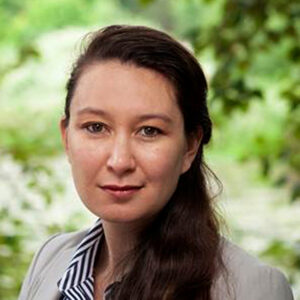
Erin Childs
Renewable Hydrogen Alliance (Industry Association)
Erin Childs serves as the Executive Director for RHA, bringing a background in energy planning and policy, clean technology acceleration, and stakeholder engagement. Prior to RHA, Erin worked at a clean energy consultancy, where she supported clients in navigating the energy transition and advancing novel energy technologies. Before moving to the Northwest, Erin worked at Southern California Edison on policy, strategy, and planning for the implementation of California’s energy and environmental goals. Erin joined RHA in 2024.
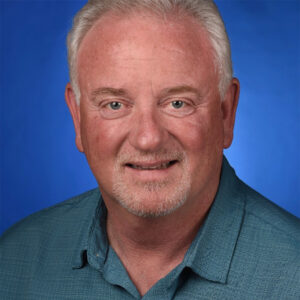
Joe Clark
Lewis County Transit
With over 25 years of experience in the transportation industry, focusing on innovative and emerging technologies, along with a strong professional leadership and consulting career in both government and transportation, Joe Clark’s background has led to vast knowledge of various renewable and traditional energy solutions. He has an extensive work history developing capital facility master plans, operational systems development, grant writing, and organizational reviews.
Joe spent twenty years traveling the nation and the world, consulting within the public sector, working to improve the leadership of underperforming organizations. In his current position as the Executive Director of Transit Services at Lewis County Transit, Joe has charted the course to be one of the first fully renewable transportation fleets in Washington state, using renewable energy electrification and hydrogen generation and fueling.
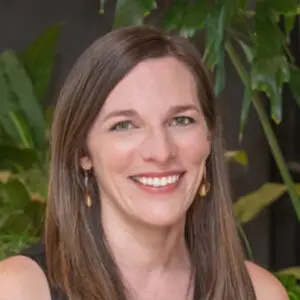
Meredith Connolly
Climate Solutions (Environmental)
Meredith Connolly brings over a decade of climate policy experience to her work to help secure needed climate progress as Director of Policy and Strategy at Climate Solutions. She advocates for innovative and equitable policy solutions to reduce climate and air pollution and create a thriving clean energy economy across the Northwest.
Meredith previously served as Climate Solutions’ Oregon Director until 2024, where she helped pass key climate laws to transition Oregon’s electric grid to 100% clean energy and electrify the buildings and transportation sectors. Prior to joining Climate Solutions, Meredith was a Climate and Energy Attorney for the Natural Resources Defense Council. Before NRDC, Meredith practiced law in the private sector. Meredith is a member of the Oregon and California State Bar Associations. She holds a JD from Boston College Law School and a Bachelor of Science in Political Science and French from Santa Clara University.

Aaron Feaver
JCDREAM (Academic / Research)
As Director of The Joint Center for Deployment and Research in Earth Abundant Materials (JCDREAM), Aaron Feaver aims to bring together researchers and industry throughout Washington to focus on sustainable material supply chains for clean energy and transportation.
Under the umbrella of JCDREAM, Aaron has led the development of the Consortium for Hydrogen and Renewably Generated E-Fuels (CHARGE), which supports the growth of the hydrogen economy in Washington state.
Prior to JCDREAM, Aaron specialized in energy storage, nanotechnology, and ultracapacitors. He co-founded EnerG2 and Group14 Technologies, two successful startups in the Seattle area focused on the synthesis and processing of high-performance carbon materials. Aaron received a Ph.D. in Materials Science from the University of Washington.
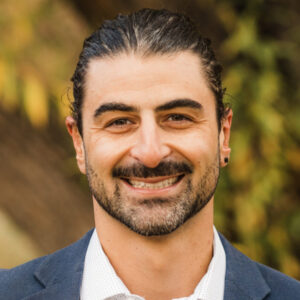
Jason Harris
NovoHydrogen
Jason Harris serves as the Senior Director of Project Development at NovoHydrogen. He spearheads development for approximately 900 MW of behind-the-meter solar and wind green hydrogen projects across Texas, California, and Oregon, including Express Ranch Hydrogen, a project chosen for negotiation as part of the DOE Pacific Northwest Clean Hydrogen Hub Program.
Previously, Jason developed utility-scale wind projects in Minnesota and California while at NextEra Energy Resources and sPower, respectively, and led the market strategy team during his tenure at AES Clean Energy. Jason holds a B.A. in Political Science (2009) and an MBA with a focus in finance and marketing (2016) from the University of Connecticut.
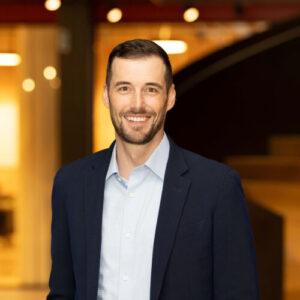
Dan Holmes
Atlas Agro
Dan Holmes serves as the President of North American operations for Atlas Agro, spearheading project development and fostering strategic partnerships. His talent for uniting diverse stakeholders is instrumental in addressing some of the world’s most pressing environmental issues. With a rich 17-year career at Siemens, he’s led high-performing teams across numerous industries, from life science and healthcare to data centers and utilities. A proud Pacific Northwest native, Dan earned his Electrical Engineering degree from the University of Idaho and a Masters in Communication from Gonzaga University.
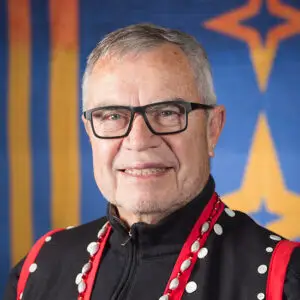
William (Bill) Iyall, P.E.
Cowlitz Indian Tribe (Tribal)
Cowlitz Indian Tribe Chairman, William (Bill) Iyall, P.E., first served as Cowlitz Chairman in 2008, and was subsequently re-elected for four consecutive terms, until his initial retirement in 2020. Under Chairman Iyall’s leadership, the Tribe established their reservation in Ridgefield, WA in 2015, and eventually opened their Casino Resort, ilani, in 2017. In 2024, Chairman Iyall was re-elected for his second stint as Cowlitz Chairman, and he looks forward to leading the Tribe again on a course toward deepened prosperity, economic opportunity, and self-determination.
Chairman Iyall received a Bachelor of Science Degree in Civil Engineering from St. Martin’s University and was named Saint Martin’s University Distinguished Alumni for Professional Achievement in 2022. He is also United States Army Veteran and worked as a licensed Professional Engineer for the city of Tacoma’s Public Works and Public Utility Departments for 35 years.
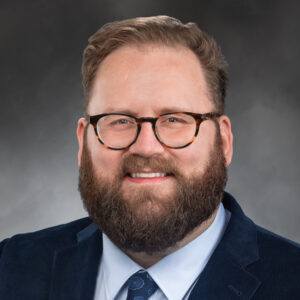
Marko Liias
Washington State Senate
Senator Marko Liias is a lifelong Washingtonian born and raised in the neighborhoods he now serves. He represents the communities of the 21st Legislative District, which includes neighborhoods in Edmonds, Everett, Lynnwood, and Mukilteo.
Marko was appointed to the House of Representatives in 2008 and won re-election three times. He was appointed to the Senate in 2014 and is currently serving his third term as a senator. Throughout his service in the Legislature, he has prioritized policies to increase access to public transportation across Washington, provide educational and career opportunities for students, make the state safer and more inclusive for LGBTQ+ youth, and build an economy that works for everyone.
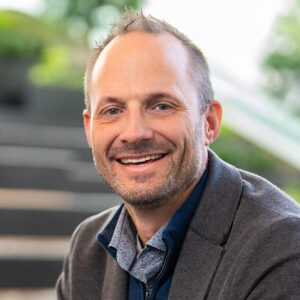
Chris Prokop
AltaGas
Chris Prokop is SVP of Business Development at AltaGas, a North American energy infrastructure company. In this role, Chris oversees a team dedicated to advancing growth opportunities for AltaGas’s midstream business.
Prior to this role, Chris was VP of Export Development and VP and General Counsel, Midstream and Corporate at AltaGas.
Chris has extensive experience in the midstream space and legal private practice, and he holds a Bachelor of Commerce and a Juris Doctor, both from the University of Saskatchewan.
Observers
- Alex Augustine, AirLiquide
- Ken Alston, Amazon
Advisory Committee Chairs
- Regional Policy and Coordination Committee – Erin Childs
- Commercialization and Technical Committee – Aaron Feaver
- Project Advisory Committee – Steve Schueneman, George Bailey (Vice Chair)
- Stakeholders Advisory Committee – Kathleen McAteer
Association Staff
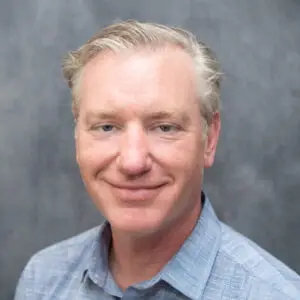
Brian Young
Deputy Director & Advisor to the President
Brian Young is the Deputy Director & Advisor to the President for the Pacific Northwest Hydrogen Association. With a keen understanding of the political and economic landscape in the Pacific Northwest, Brian is dedicated to fostering a diverse and prosperous renewable energy sector in the region.
Before joining the Association, Brian was appointed by Washington State Governor Jay Inslee in 2013 as the Clean Energy Technology Industry Sector Lead within the Office of Economic Development & Competitiveness. His extensive background in clean tech includes pivotal roles in various industries, building on his experience as a U.S. Navy officer. Brian began his post-military career with an early-stage biofuel startup that evolved into Imperium Renewables, the largest independent biodiesel producer in the U.S. Following his tenure at Imperium, he founded Element Strategic Partners, a consultancy that played a crucial role in establishing the Washington Clean Energy Leadership Council and addressing sustainability and carbon issues on a global scale. He holds a degree in Science, Technology, and International Affairs from Georgetown University’s School of Foreign Service.
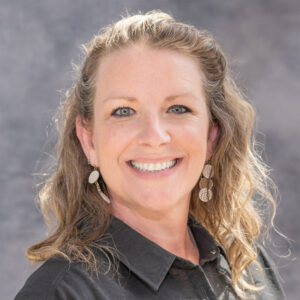
Jaclyn Woodson
Operations Director
With a proven track record of managing budgets, developing policies and procedures, coordinating with governmental bodies, and driving successful public-private partnerships, Jaclyn Woodson is a seasoned professional in management and government liaison roles. Her background includes expertise in accounts management, policy development, procurement, legislative analysis, and program, project & contract management. Additionally, her experience in tribal coordination and community engagement has allowed her to navigate complex situations effectively.
Jaci has successfully managed multi-million-dollar budgets, stood up significant workgroups, boards, public-private partnerships, and played a key role in securing substantial DOE awards. In her current role as PNWH2 Operations Director, she oversees various responsibilities such as board management, budget development, contractor coordination, and policy implementation to ensure federal and state compliance. Jaci previously served as the Managing Director, Budget at the Washington State Department of Commerce and has a history of preparing and delivering testimony before legislative bodies, developing policies and procedures, and managing grants and contracts efficiently.
Board of Directors: Frequently Asked Questions
How were the board members selected?
The Washington State Department of Commerce spearheaded a call for interest for Pacific Northwest Hydrogen Association board members. Representatives from public, private and tribal organizations were encouraged to submit a letter of interest, resume and references. The Pacific Northwest Hydrogen Association’s goal was a board that included representatives from state and tribal governments, public and private project developers, manufacturers, end users, research institutions, labor unions, academia, and communities around the state.
Does your board include representatives from broad regional stakeholders?
The Pacific Northwest Hydrogen Association’s Board of Directors includes representatives from Tribal Nations, labor, business and industry, higher education, government, and the environmental community spanning the region.
What demographics will be served by the board?
The PNWH2 Hub will create economic opportunity across all demographics, creating more than 10,000 quality, good-wage direct jobs across the Pacific Northwest—careers with staying power to support local economies.
The PNWH2 Hub Board of Directors includes representation from unions, environmental groups and tribal representatives and will have representatives from those groups on our planned Stakeholder Engagement governing board.
What commitment to union labor will be made?
Our proposed projects plan to hire local union labor whenever possible. Each project has committed to having Community Workforce Agreements (CWAs) and Project Labor Agreements (PLAs) in place that include labor standards. The PLAs will be with one or more labor organizations, which is a pre-hire collective-bargaining agreement establishing the terms and conditions of employment for a specific construction project.
Workforce commitments include investing in joint labor-management/state-registered apprenticeship programs, priority hiring programs for former coal industry workers and investing more than $4 million in the Centralia College training center to provide worker training.
What type of training and development programs are planned?
To ensure a qualified workforce, the Hub will be investing more than $4 million in training programs in partnership with area colleges and universities, positioning American workers at the forefront of the industry for generations. Existing hydrogen production already powers key sectors like semiconductor manufacturing, port operations, and power generation—sectors that employ tens of thousands across the Northwest, with opportunity for expansion.
Some examples of the programs we proposed include apprenticeships, training opportunities to help retain already experienced workers through the clean energy transition, and enable science, technology, engineering and math (STEM) education program pathways to support the hydrogen workforce.
How will you engage with schools and community organizations?
Our proposed projects will work in their local communities to help enable science, technology, engineering and math (STEM) education program pathways to support the hydrogen workforce and engage with K-12 schools, higher education and community organizations to learn about hydrogen safety and technology, and how to be a part of the hydrogen future.
For example, Centralia College helps host an annual STEM Career Academy for high school students. Students attending the 2023 Academy participated in tours, career planning and hands-on activities like building hydrogen-powered model cars.